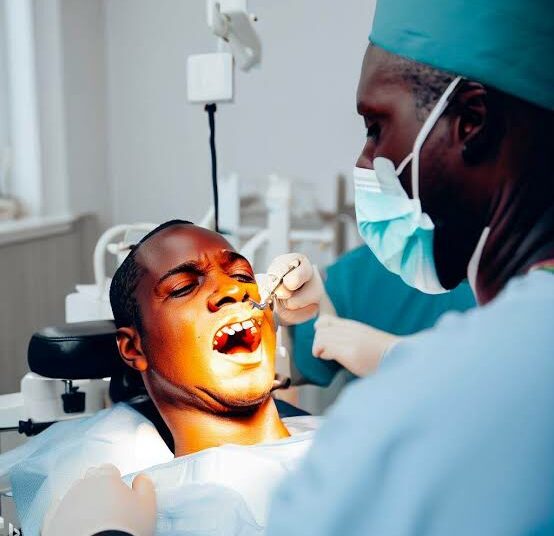One of the thriving professions that students can veer into in life in the medical science field is dentistry.
Dentists are specialist doctors who treat diseases of the oral cavity, its structures, and related structures.
A dentist also cleans the teeth and gums, as well as educates the patient on how to maintain good oral hygiene. They can use implants, bridges, or dentures to replace missing teeth, as well as whitening, veneers, or crowns to improve the appearance of existing teeth.
They are trained in a university for six years; four or five (depending on the school) of these years will be spent together with the students of medicine. While studying dentistry in Nigeria, a student must have taken JAMB’s University Tertiary Matriculation Examination (UTME) and possess an A-Level/O-Level examination with Five (5) SSCE credit passes in English Language, Physics, Chemistry, Biology and Mathematics.
It is gathered that newly inducted dentists undergo one year of compulsory housemanship and another year of a National Youth Service Corps (NYSC).
To practice, they will register with the Medical and Dental Council of Nigeria (MDCN), Hence, becoming members of the Nigerian Medical Association (NMA) and also, the Nigerian Dental Association (NDA) after graduation.
In the dental field, there exist diverse specialties which are similar to that of graduates of medicine.
Examples of different branches of dentistry and specialists include; Oral and maxillofacial radiology, Oral and maxillofacial surgery, Oral medicine, Orofacial pain, Orthodontics and dentofacial, orthopedics, Pediatric Dentistry, Periodontics, and Prosthodontics.
However, it is gathered that, under the supervision of the Faculty of Dental Surgery of the National Postgraduate Medical College of Nigeria or the West African College of Surgeons, dentists can become fellows (consultants) in their chosen fields and attain membership in Medical and Dental Consultants Association of Nigeria (MDCAN). It is gathered that, in Nigeria, there are approximately five thousand (5,000) dental experts.
Licensing & Certification
Speaking with a dental student of the University of Calabar, Idongesit Joseph said, a dentist must be licensed to practice in all 36 states of the federation. In some cases, graduates may be required to take the Medical and Dental Council of Nigeria (MDCN) Assessment Examination.
“For foreign graduates or professionals that intend to practice Dentistry in Nigeria, as they are required to take and pass the Medical and Dental Council of Nigeria (MDCN) Assessment Examination,” he stated.
Affirming that they must present proof from the health regulatory organizations in the countries where they were trained that they are qualified to be registered and could have practiced in those countries if they so desired.
It is learned that dentists can work in private practices while on the other hand, may work in universities, public health facilities, hospitals, or clinics in both the states and federal medical institutions.
Lucrativity
The profession is seen as a lucrative one in Nigeria because they are in high demand. As a result, they are paid the same as medical physicians and can make a lot of money in their practice.
They are specialists that are entitled to special allowances. It is gathered that, depending on the dental field, they can make a lot from their chosen field while taking up consultancy roles in Federal, state, or private hospitals as well.
Findings reveal the average salary of a dentist is N250,000 while there’s a potential for higher pay with years of experience in the field, even as there are room to consult and make additional income.





